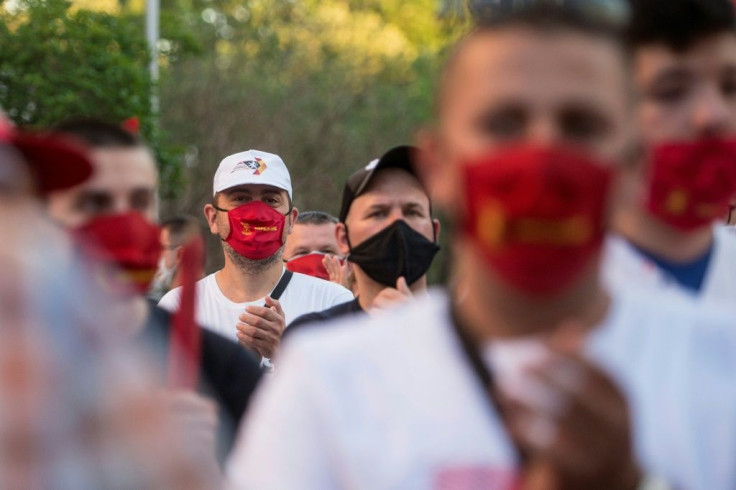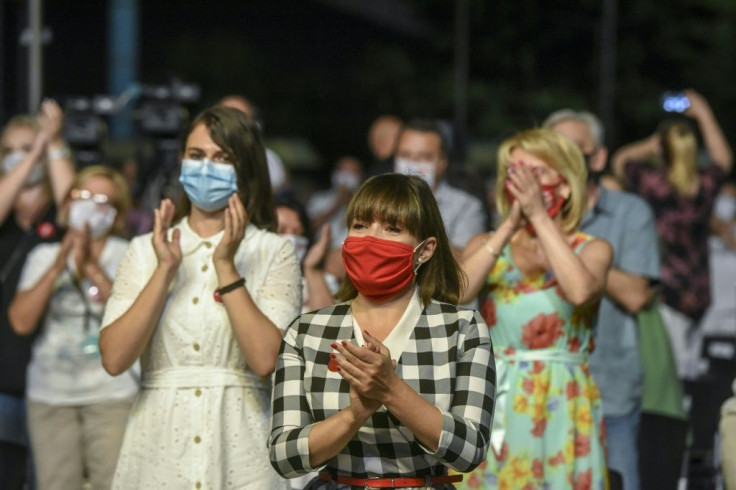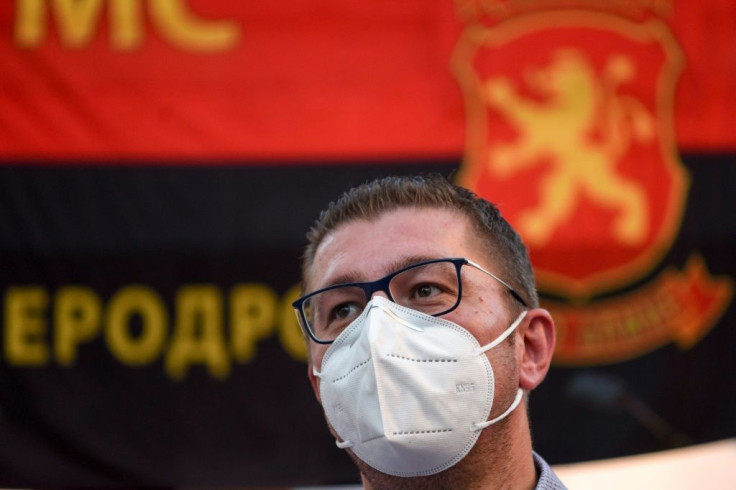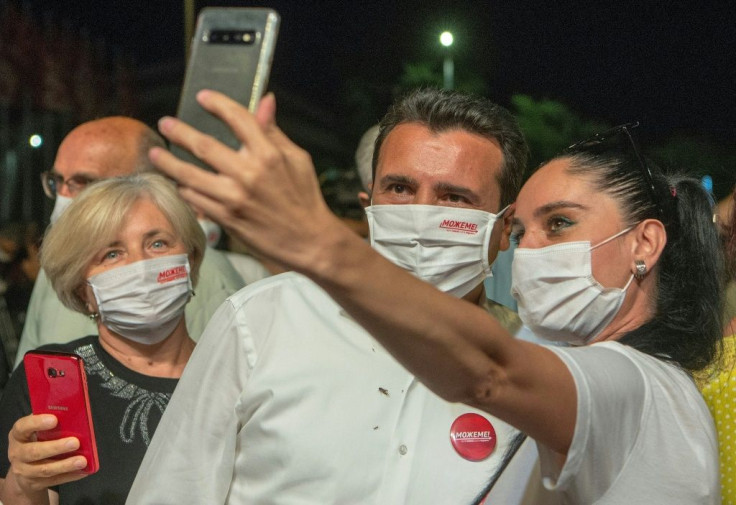Tough Coalition Talks In North Macedonia After Tight Polls
North Macedonia's Social Democrats on Thursday faced tough coalition talks after a razor-thin win over nationalist rivals, threatening political instability as the country prepares to start EU membership talks.
The results of Wednesday's election traced deep fault lines in a small Balkan state that has lurched from crisis to crisis in recent years.
It was the first parliamentary poll since the Social Democrats added "North" to the country's name last year -- a move that ended a decades-old dispute with Greece but was highly controversial at home.

With some 36 percent of the vote, the centre-left Social Democrats (SDSM) need allies to rebuild a government.
Protracted coalition talks could see a leadership void at a time when coronavirus infections are surging and the country's already weak economy is headed towards a pandemic-triggered recession.
"We are going into a period of hard party negotiations," said political analyst Nikola Spasov, warning of instability.

According to projections by the state election commission, the Social Democrat camp was in line for 46 seats in the 120-member assembly, followed by 44 from their right-wing rivals VMRO-DPMNE.
If Social Democrat leader and former premier Zoran Zaev fails to muster the necessary alliances, VMRO-DPMNE would be allowed to try.
The nationalist party has been highly critical of the name deal, which opened the door to the EU in exchange for giving Greece exclusive rights to the name Macedonia for its own neighbouring region.

Though VMRO-DPMNE has stopped short of calling for the deal's repeal, they have lambasted the accord as "treason".

The top options for junior partners are parties representing the ethnic Albanian minority, who make up around a quarter of the two million population.
In third was the Democratic Union for Integrity (DUI) with some 15 seats, followed by another rival Albanian camp with 12, according to the election commission.
But DUI, the traditional kingmaker, has this year demanded that its candidate be named prime minister in exchange for any alliance.

Zaev has previously shot down the proposal as "blackmail".
Celebrating a victory after results rolled in early Thursday, he said "our path to progress is confirmed".
"The citizens went out and voted for a clear future, for unity and solidarity, for economic patriotism, for law and order," the 45-year-old said.
Yet opposition leader Hristijan Mickoski insisted the vote still showed an appetite for change.
"This is a hard battle and we will win together," he said, noting that his party had won more votes than the Social Democrats themselves, who were in a pre-election coalition with BESA, an ethnic Albanian party.
The Social Democrats fared slightly worse than in the last poll in 2016, when they ultimately ended VMRO-DPMNE's nearly decade-long reign, a period marked by repression and corruption under now self-exiled former strongman Nikola Gruevski.
Despite the progress with the EU talks, there is a perception that Zaev has "not delivered on some of the key promises, including justice reforms", said Elena Stavrevska, a political scientist at the London School of Economics.
Low wages, high unemployment and widespread corruption have also been gnawing away at public faith in politics for years.
"We have had enough of promises, now it is time for progress," said 70-year-old Dimitar Sumkovski, a voter in the capital Skopje.
The elections were held to replace a caretaker government that struggled to manage the coronavirus crisis.
With nearly 400 deaths, the landlocked country has the highest per capita fatality rate in the Western Balkans, according to official data.
The technical government took over after Zaev stepped down six months ago following the EU's initial failure to open accession talks -- a promise Brussels had made in exchange for the name change and other reforms.
The bloc later gave the green light in March, although Skopje is still waiting for a date to start formal negotiations.
© Copyright AFP 2024. All rights reserved.











